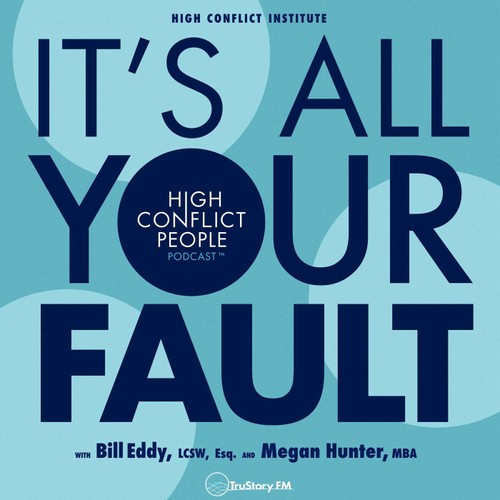
 It’s All Your Fault: High Conflict People
It’s All Your Fault: High Conflict People Red Flags in Adult Relationships: Understanding Relationship Violence, Part 1
Feb 8, 2024
Exploring red flags in adult relationships, the podcast dives into personality disorders linked to domestic violence, spotting early warning signs, coercive control tactics, impulse control problems, and avoiding relationship blind spots.
Chapters
Transcript
Episode notes
1 2 3 4 5 6
Introduction
00:00 • 5min
Navigating Red Flags in Adult Relationships
04:37 • 23min
Addressing Domestic Violence in Professional Settings
27:39 • 4min
Improving Empathy and Absent Presence in Therapy and Mediation
31:46 • 2min
Recognizing Signs of Coercive Control in Relationships
33:49 • 6min
Reflections on Relationship Violence and Self-Worth
39:49 • 2min
